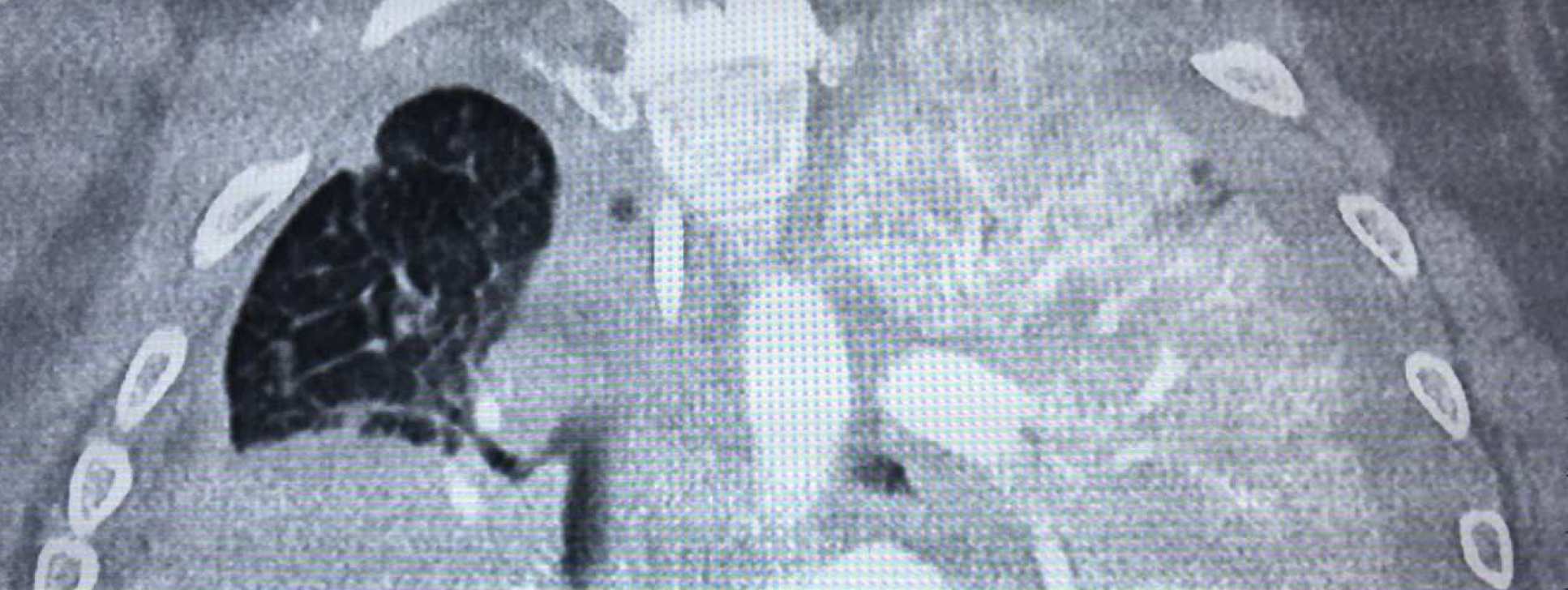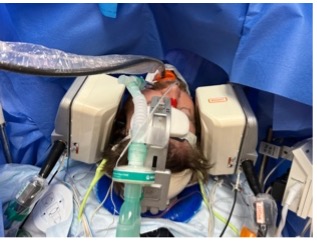
What we do
As clinical academics at one of the world’s unique and specialist cardiothoracic centre and motivated by offering better solutions for frequent and severe postoperative complications in high-risk patients, we are concerned with the postoperative pulmonary and systemic organ and multiorgan failure. Our research is dedicated to better understanding the fundamental mechanisms involved in these complications and translating mechanistic insights into sophisticated diagnostics in real time at the bedside. We are also committed to improving outcomes by assessing our patient care locally and on a global international scale and by evaluating novel therapeutic options and by building international consensus towards the highest quality of care.
We are focusing on two principle mechanistic areas namely the surgical inflammatory response and the consequent metabolic disequilibrium. As the cytokine and inflammatory mediator concept is generally too simplistic, we are evaluating pro-and anti-inflammatory response and balance in a broader context. This strategy allows integrating these with multiple cellular and global phenotyping approaches both as systemic and organ specific compartments (plasma, urine, breath). Translating these alterations, we are conducting biomarker research with major interest in methods that are suitable for deployment into the operating room and intensive care unit with real time data acquisition (Nephrocheck, exhaled breath analysis). In the therapeutic domains we are improving ventilation practices, modulating surgical inflammation by novel cytokine absorption therapy, optimising metabolism by inhaled nitric oxide and improving transplantation by revolutionary ex vivo platforms.
Why it is important
Modern cardiothoracic surgery provides some of the most innovative treatment options for patients suffering from severe and end stage cardiovascular and respiratory disease, including mechanical assist and heart-lung transplantation. Despite major progress, these complex surgeries represent some of the most invasive insults to humans and are associated with high perioperative complication rates, disability, severe morbidity and mortality.
How it can benefit patients
The promise of perioperative medicine is that we accurately identify and minimise patients’ risks for the surgery, conduct every aspect of the operation to the highest standards, manage postoperative pain effectively, prevent postoperative complications or detect them at early stage and treat them efficiently so the patient can leave intensive care unit, the hospital and return to their loved ones in an improved and fully functional state. However, clinical risk scoring is largely inadequate, and requires better understanding of the biological condition of the patient. Our efforts towards bioprediction of systemic and organ dysfunction will better stratify patients before the operation. Our research with inhaled nitric oxide already changed clinical practice and part of international guidelines to protect the heart during artificial heart insertion. Now we need to better define the role of pulmonary vasodilator treatment in more routine cardiac surgery. Our extensive utilisation of ex vivo heart and lung perfusion already increased and possibly improved transplantation and made heart transplantation possible using donation after cardiac death. But monitoring and decision making of acceptance or rejection for human transplantation is limited and new inventions are needed to maximise the potential of these sophisticated technologies. Our activities with haemoadsorption already made emergency cardiac operations safer by effectively removing blood thinning medications and reducing surgical bleeding or the need for transfusions. But now we need to fully define the role of this technology and cytokine removal strategies in the urgent patient populations.
Overall, our research has the potential that we better understand the individual patient, personalise treatment and offer higher standard of care.
Summary of current research
- a) Precision phenotyping of high-risk surgical patients
- b) Bioprediction and mechanisms of vasoplegia
- c) Advanced bio-and regional haemodynamic monitoring
- d) Translational research to optimise ex vivo lung and heart perfusion to attenuate severe Primary Graft Dysfunction.
- e) Acute and chronic pain studies
- f) Impact of perioperative inflammation and anaesthesia on cancer recurrence and survival
We are serving as the translational metabolic lead centre for the PROVeNet Network of the European Society of Anaesthesiology and Intensive Care. In collaboration with the National Phenome Centre we are profiling patients from the largest perioperative ventilation trials (PROVHILO) according to their metabolic status and integrate the metabolic picture with clinical and inflammatory datasets. We are expanding these strategies to thoracic ventilation trials (PROTHOR) and developing a lung transplant consortium to elucidate optimal ventilation and its effect on biotrauma during lung transplant operations.
Vasoplegia is one of the most severe forms of systemic inflammation with tremendous impact on organ injury and failure and is associated with prolonged stay in the intensive care and dramatically reduced survival. We have identified that a 3rd of patients suffers from these conditions at the higher risk spectrum of cardiothoracic surgery such as LVAD implantation, transplantation and endocarditis. We are using precision inflammatory and metabolic profiling to predict vasoplegia and investigate the effectiveness of intraoperative cytokine removal by Cytosorb (CYCLONE-LVAD trial).
 We are pushing the boundaries of intraoperative monitoring by real time biomarker monitoring of Acute Kidney Injury using clinically validated markers of renal apoptosis (Nephrocheck). We are founding members of the ESAIC Renal Protection Network and actively taking part in prospective trials (BigPAK) and conducting our own investigations in Lung transplants and LVADs.
We are pushing the boundaries of intraoperative monitoring by real time biomarker monitoring of Acute Kidney Injury using clinically validated markers of renal apoptosis (Nephrocheck). We are founding members of the ESAIC Renal Protection Network and actively taking part in prospective trials (BigPAK) and conducting our own investigations in Lung transplants and LVADs.
We are recognised centre of excellence for Off Pump Coronary Artery Bypass (OPCAB) surgeries, with one of the world’s greatest experiences. While we improved overall perioperative outcomes with safe long-term profile, renal and stroke complications remained unchanged. We are evaluating novel monitoring including cerebral oximetry and robotic assisted transcranial doppler to better monitor and optimise brain perfusion. We are developing clinical trials for high risk OPCAB patients with preexisiting cerebral vascular disease.
As part of the first multicentre national trial of ex vivo lung perfusion (DEVELOP-UK) we are leading mechanistic studies to explore the global metabolic consequences of EVLP. DCD heart transplantation is one of the hottest topic on the transplant field allowing transplanting hearts and lungs after cardiac death and resuscitation of the organs on ex vivo platforms. Current acceptance criteria mainly centre on perfusate lactate dynamics, which has major limitations. Towards more global inflammatory and metabolic characterisation, we have developed the PRIDE-HEART study to analyse perfusate and tissue samples with precision metabolic profiling and tissue metabolic imaging. To enable this line of research, we are collaborating with Prof Takats, and have developed a new adaptation of DESI mass spectrometry for the analysis of ex vivo perfused lung and heart biopsies.
We have also mobilised the UK transplant community to clinically evaluate the potential utility of cytokine removal therapy (CYCLONE-Heart Tx) for heart transplantation and to improve inflammatory and metabolic alterations with an end point of primary graft dysfunction. to evaluate are wards translational Collaboration with Newcastle University and DEVELOP-UK investigators.
To respond to national perioperative priorities in these areas, we take leading part in some of the largest pain studies for thoracic anaesthesia comparing the gold standard epidural blockade to the less invasive paravertebral blocks (TOPIC-2 trial). We are also applicants on a pilot study for novel regional anaesthesia Pectoralis Intercostal Rectus Sheath (PIRS) Block trial (ORIGIN) for cardiac surgery. Both TOPIC-2 and ORIGIN are led by Birmingham University.
We are also exploring acute and especially chronic pain in cardiothoracic surgery. Novel surgical techniques moved away from traditional sternotomy and utilise less invasive thoracotomy approaches for both Lung transplantation and LVAD implantation. The pain implications of these new procedures are poorly understood.
While surgery offers the hope of curative cancer therapy, the perioperative period is also a time of vulnerability because it can promote the seeding of circulating tumour cells or the growth of undiagnosed micrometastatic tumours. It is being increasingly recognised that the mode of anaesthesia may have a dramatic influence on cancer outcomes. Specifically, traditional inhalational anaesthesia is associated with a decrease in disease-free survival and overall survival when compared with the more recent alternative of propofol-based Total Intravenous Anaesthesia (propofol-TIVA). Additionally, intravenous lidocaine (a local anaesthetic) has promising anti-neoplastic properties. These propositions are being investigated in the largest anaesthesia cancer trial (VAPOR-C) as an international multicentre, randomised controlled definite trial. We are leading the UK component of this with an embedded mechanistic study (VAPOR-C Bio-UK) towards liquid and breath biopsies to better elucidate the impact of perioperative stress and inflammatory response on cancer immune surveillance and the biology of cancer cell in collaboration with Brunel University.
Information
Researchers
Dr Nandor Marczin
/prod01/channel_3/media/images/people-list/Nandor_Marczin--tojpeg_1470837327275_x4-3.jpeg)
Dr Nandor Marczin
Senior Clinical Lecturer Honorary consultant
Adrian Wesek
/prod01/channel_3/media/images/people-list/Adrian-Wesek.jpg)
Adrian Wesek
Research Associate
Dr Kuo Li
/prod01/channel_3/media/images/people-list/Kuo-Li.jpg)
Dr Kuo Li
Research Associate
PhD students
Dr Romano Rosalba
/prod01/channel_3/media/images/people-list/Romano-Rosalba.jpg)
Dr Romano Rosalba
Dr Prashant Mohite
/prod01/channel_3/media/images/people-list/Prashant-Mohite.jpeg)
Dr Prashant Mohite
Abdulrahman Alahmari
/prod01/channel_3/media/images/people-list/Abdulrahman-Alahmari.jpg)
Abdulrahman Alahmari
Nora Al Hannoush
/prod01/channel_3/media/images/people-list/Nora-Al-Hannoush-.jpg)
Nora Al Hannoush
Research Assistants (Brunel University Placement Students)
Jovile Kazileviciute
/prod01/channel_3/media/images/people-list/Jovile-Kazileviciute.jpg)
Jovile Kazileviciute
Beatriz Gil Daminelli
/prod01/channel_3/media/images/people-list/Beatriz-Gil-Daminelli.jpg)
Beatriz Gil Daminelli